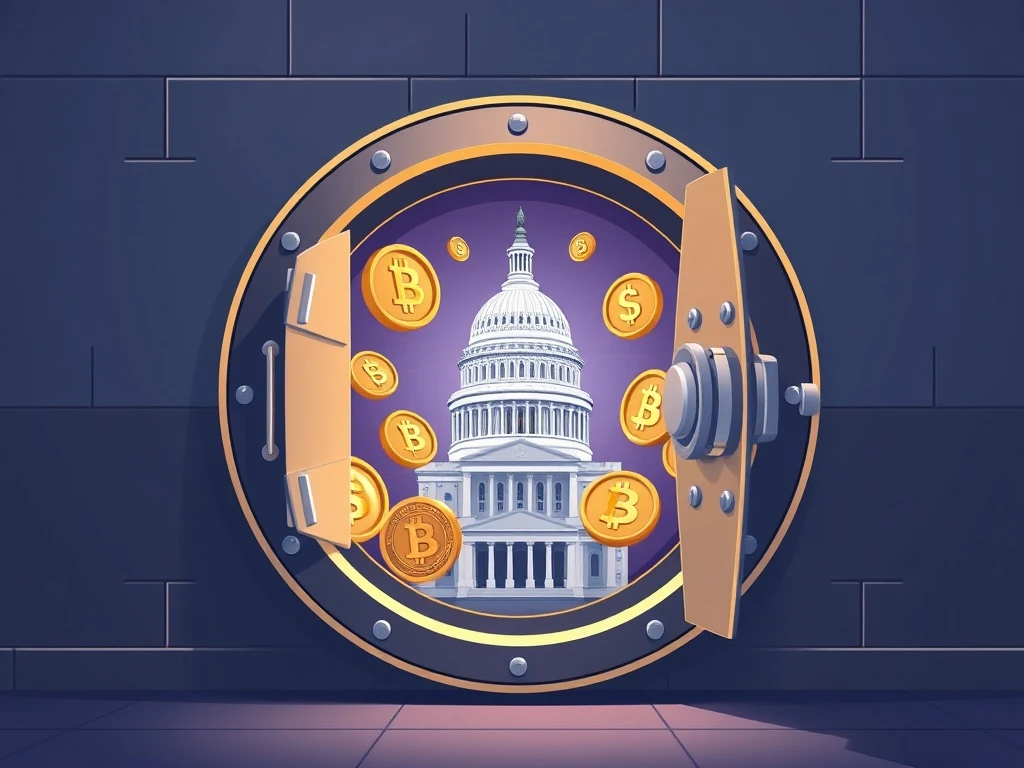Crucial Breakthrough: Paxos Seeks US Bank License Amidst Evolving Stablecoin Regulation

The cryptocurrency landscape is constantly evolving, with regulatory clarity becoming a paramount goal for institutions. A significant development is unfolding as Paxos, a leading crypto infrastructure company, renews its pursuit of a US national trust bank license. This strategic move could reshape the future of stablecoin regulation and enhance crypto oversight across the nation. Understanding this effort is crucial for anyone following the digital asset space.
Paxos Reaffirms Commitment to Federal Oversight with New Application
Paxos Trust Company, known for its role in powering PayPal’s PYUSD stablecoin, has officially reapplied for a US national trust bank charter. This renewed effort seeks to convert its existing New York limited-purpose trust charter into a federal one. If approved by the Office of the Comptroller of the Currency (OCC), this federal charter would empower Paxos to custody customer assets and settle payments nationwide. Importantly, this status operates under robust federal oversight, potentially boosting its appeal to major institutional clients. Unlike traditional banks, a national trust bank does not accept cash deposits or issue loans. Paxos co-founder and CEO Charles Cascarilla emphasized this commitment. He stated that OCC oversight will “build on our historic commitment to maintaining the highest standards of safety and transparency.”
A Look Back: Paxos’s Initial Bid for a US Bank License
Paxos initially sought this prestigious federal charter in December 2020. The company received preliminary conditional approval from the OCC in April 2021. This green light permitted Paxos to begin fulfilling various pre-opening requirements. These included meeting specific capital, compliance, and operational benchmarks. However, OCC rules stipulate that conditional approvals expire if the bank does not open within 18 months, unless an extension is granted. Paxos’s initial approval ultimately lapsed on March 31, 2023. During this period, Paxos continued its operations seamlessly under its long-held New York limited-purpose trust charter, which has been in place since 2015. At that time, the company publicly affirmed its dedication to pursuing federal oversight when market conditions were deemed appropriate. This persistent pursuit highlights Paxos’s long-term vision for regulated crypto operations and its desire for a comprehensive Paxos bank license.
Navigating Regulatory Challenges and Enhancing Crypto Oversight
The period surrounding Paxos’s lapsed charter was marked by increasing regulatory pressure. In February 2023, the New York Department of Financial Services (NYDFS) ordered Paxos to cease issuing Binance USD (BUSD) due to compliance concerns. This directive placed the company under heightened scrutiny, compelling it to terminate its partnership with Binance. This scrutiny recently culminated in a significant development. The NYDFS reached a $48.5 million settlement with Paxos. This settlement addressed alleged failures to uphold anti-money laundering provisions within its Binance partnership. According to a recent announcement, Paxos will pay a $26.5 million fine to New York State. Additionally, it will allocate another $22 million towards significantly upgrading its internal compliance program. These actions underscore the critical importance of stringent crypto oversight in the evolving digital asset space.
Stablecoin Regulation Takes Center Stage with Federal Frameworks
Paxos’s renewed US bank license bid arrives at a pivotal moment for stablecoin regulation. Just weeks ago, the GENIUS Act established the first federal framework specifically for stablecoin issuers. This legislative progress marks a significant step towards greater clarity and legitimacy for digital assets in the United States. This move by Paxos also follows a recent trend. Other prominent stablecoin issuers, including Ripple and Circle, have also submitted charter applications. The push for a comprehensive federal charter by key players like Paxos, Ripple, and Circle signals a collective industry desire for clear, consistent rules. Such frameworks are essential for fostering innovation while protecting consumers and ensuring financial stability. The ongoing dialogue between regulators and industry leaders is shaping the future of digital finance.
The Broader Implications of a Federal Charter for Paxos and the Market
Securing a US national trust bank charter would provide Paxos with several strategic advantages. It would significantly enhance its appeal to institutional clients seeking regulated and secure crypto services. A federal license offers a higher level of trust and broader operational reach compared to state-specific charters. For the wider cryptocurrency market, this development is equally significant. Increased regulatory clarity, particularly for stablecoin regulation, can unlock new avenues for mainstream adoption. It could also encourage more traditional financial institutions to engage with digital assets. The move towards federal oversight suggests a maturation of the crypto industry. It signals a shift from a largely unregulated environment to one with defined boundaries and responsibilities. This evolution is crucial for long-term growth and stability. Ultimately, Paxos’s pursuit of a federal charter reflects a growing industry commitment to compliance and transparency.
Paxos’s renewed application for a US national trust bank license represents a critical juncture for the crypto industry. It highlights the ongoing efforts by leading firms to operate within clear regulatory frameworks. As stablecoin regulation continues to evolve, this pursuit of a federal charter sets a precedent. It demonstrates a commitment to robust crypto oversight and paves the way for greater institutional confidence. The outcome of this application will undoubtedly influence the future landscape of digital assets in the United States.







